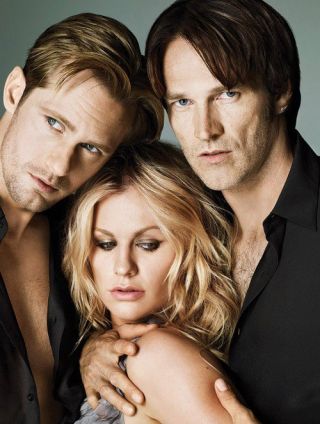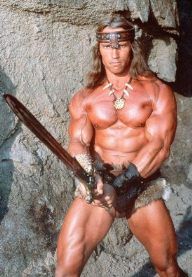If you missed Part 1, you will find it here.
“Do you have any idea how much I want you, Ana?”, “What have you done to me, Ana?” …

"What have you done to me, Anastasia?"
The man/woman of your dreams has now pinned you against a wall, snarling in your ear. You resist, to no avail! She or he takes you.
In the 1970s in the pages of Psychology Today, Barbara Hariton offered the possibility that, instead of reflecting masochism (see Part 1), such fantasies accentuate self-feelings of desirability. That is, in our fantasies, we think of ourselves as more desirable than we actually are. So desirable in fact that a suitor (not just any suitor, mind you) must take you… passionately.
If Hariton were to be correct, then she has made forceful submission fantasies… well… normal. Or worse: healthy. This possibility did not gain traction in the halls of academia at that time, or apparently since. Our examination of the literature suggests she was largely ignored.
Until now. Exit discourse, enter empiricism.
We created a hot and heavy vignette, where you, the reader (both men and women), are asked to imagine yourself in the scenario. You are followed into a room, the door is closed, and an undescribed member of the opposite sex forcefully takes you. You offer little resistance.
You are then asked how appealing you find the fantasy scenario, what characteristics you project onto the fantasy object when you have such thoughts, and what meaning does the fantasy have for you. We also measured sex guilt (guilty feelings at the thought of sex), an alternate hypothesis (see Part 1).
Indeed, our analyses showed that, and here is some statistical jargon, sex guilt did not predict the appeal of the fantasy for men or women. That means, we cannot conclude that women have these fantasies out of anxiety or guilt. Instead, we found support for Hariton’s view: Fantasies like these make us feel desirable. And, as mentioned, men found it more appealing than did women.
Think about it. If a partner meekly asks if s/he can touch you here or touch you there, he or she lacks the ardent passion of someone who instead growls, “I’m taking what I’ve wanted all night”. The growler makes us feel sexy and pursued. Here, the sexual power is all ours; how astounding am I to provoke this response? And why would only women want to feel this way?

Whether our fantasy object is a pirate, vampire, Celtic prince, sexy librarian, captain of industry, or whatever, seems hardly relevant. It just makes for different cover art, which is, after all, half the fun. They don’t call them bodice rippers for nothing! Bonus if two are fighting over you. We put up our token resistance and since the interaction happens only in our mind, we have complete control.
As does Anastasia Steele, by the way. And the reader is reminded of this over and over and over. No one is touching anyone until the contract is discussed. Additionally, the reader is assured that certain ‘icky things’ will not happen because a list has been agreed upon between our protagonists in advance. So, no, dear reader, you will not suddenly encounter medical instruments or other tools of hardcore BDSMers (no link for you, Google it yourself!). Moreover, the reader is also assured from the outset that Christian adores Anastasia and her alone. He’s already introduced her to his mother by chapter 10 for Pete’s sake. Now that’s commitment.
And in that sense, 50 Shades speaks exquisitely to women’s mating mind by following a formula that wins billions of dollars a year on the consumer market.
Observe:
- Young innocent encounters experienced, older, wealthy powerful man (check, check, check and check)
- ...who is uncommonly handsome (how can he not be with a name like Christian Grey?).
- He sexually awakens her (surprise, she’s a virgin!) and his manhood has ‘considerable length’, even in repose. (“That was inside me? It doesn’t seem possible!”).
- Despite her inexperience, she is inhumanly orgasmic (Through nipple stimulation? He’s just that awesome!)
- Even he is surprised by how much he wants her, and only her. “What have you done to me, Ana?” What indeed? With virtually no character development, the reader too is left to wonder. But it is made clear that he is magically oblivious to the other hot women who surround him.
In essence, we have what is known as a man with ‘high mate value’; fine genes, rich, handsome, gentle, smart, dominant, monogamous, committed, generous, and….
… devoted to only you.

This is not to say that women are one-minded about what makes the ideal mate. That’s too simple. Individual differences in women are evident from the wide array of responses ranging from Barbara Walters’ clutch-the-pearls shock over rear entry to the book’s obvious commercial success. We have demonstrated that different female readers see different things in the protagonist of such submission fantasies: Dominant women see the ‘warrior lover’ and subordinate women envision a profile consistent with the ‘courtly knight’. Interestingly, like most successful romance writers, E.L. James has given us the raw material for both.
Christian the ‘warrior lover’: He is athletic, uncommonly sexually skilled, driven and in control of those around him, arrogant, aggressive, autonomous, unpredictable and cold. He will take on other men, is successful at business, is forcefully passionate and well endowed. He ties her up.

Christian the courtly knight: He is gentle and concerned for her wellbeing, he dries her hair, flies her home, buys her clothes, saves her when she is imperiled, has impeccable public manner, respects her intellect, all of their sexual activities will be completely consensual. He makes her tea.
The book adds two additional elements we have shown empirically that are important to women: He is very clear minded in his pursuit of Ana (he is not wishy washy or otherwise impaired) and his focus is exclusively on her. When we add these elements to our own submission fantasies, we have assured ourselves of our own sexual allure and power. Indeed, Christian confesses outright that the power is predominantly Anastasia’s, in case the reader should somehow doubt it. He won’t sleep in his bed with just anyone, you know.
Finally, let’s not forget Ana’s power to tame the beast within him. Cliché complet!
Romance writers have long understood the feminine sexual psyche. Nothing speaks to raw human motivation like where we spend our dollars. Curiously, feminist writers have long ignored the ‘self enhancement hypothesis’ of Hariton.
Sometimes the truth doesn’t have to hurt. Even with a little snap of a riding crop.
[Based on: Hawley, P.H., & Hensley, W.A. (2009). Social dominance and forceful submission fantasies: Feminine pathology or power? Journal of Sex Research, 46, 568-585.]




